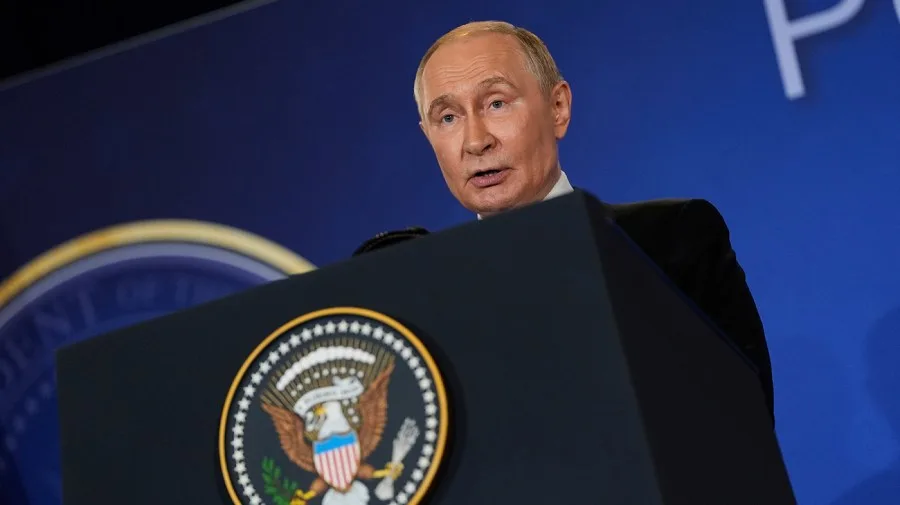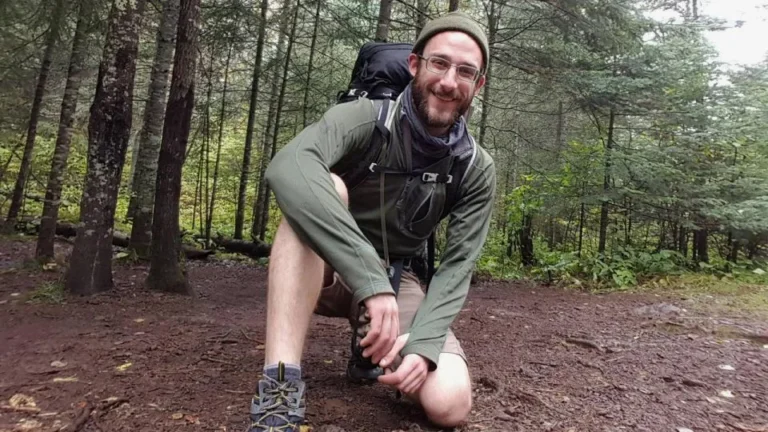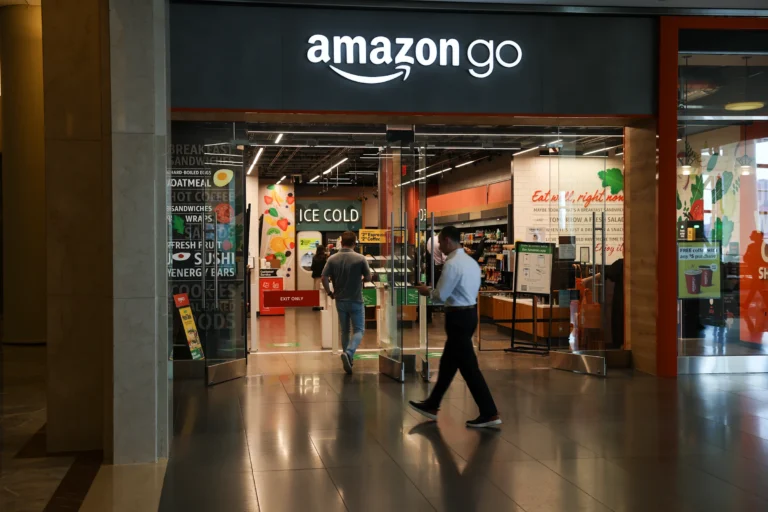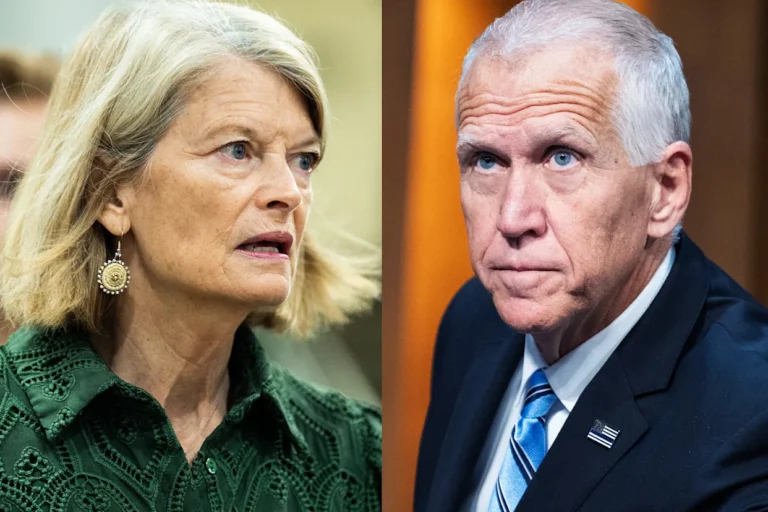
Russian President Vladimir Putin is seeing his hand steadily strengthen in negotiations over a potential peace deal as President Trump seeks to plot out a path to end Russia’s war with Ukraine.
The Kremlin has escaped the imminent threat of additional U.S. sanctions and convinced Trump to drop his demands for an immediate ceasefire, without making any major concessions beyond an openness to future talks.
It’s not entirely clear that Putin wants a deal unless it is completely on the Kremlin’s terms, but just engaging with Trump has elevated the Russian leader at little cost.
“I think that they found that getting engaged in this process can sort of scuttle those potential punishments, at least for the foreseeable future,” said Dmitry Gorenburg, senior research scientist in Russia studies at CNA, a national security research organization.
“And in the meantime, they can continue to prosecute the war, which … they see as going relatively well for them right now.”
Trump has maintained a drumbeat of optimism following his high-profile meeting with Putin in Alaska last week. After those talks, Trump acknowledged there was no ceasefire deal, but he said they’d made progress.
Over the weekend, Secretary of State Marco Rubio, who attended the Trump-Putin meeting, said the sides were a long way away from a peace deal, but he also said they’d made enough progress to keep working. And Steve Witkoff, Trump’s envoy to the region, said Russia had agreed to security guarantees for Ukraine, though exactly what those might look like is unclear.
That set the table for Monday’s meetings between Trump, Ukrainian President Volodymyr Zelensky and European leaders, who after visiting the White House said they were encouraged by Trump’s willingness to involve the U.S. in potential postwar security guarantees for Ukraine.
Trump is now pushing Putin and Zelensky to sit down for direct talks for the first time since Russia launched its war on Ukraine in February 2022, hoping they can start hashing out the details of a peace agreement.
Gorenburg said he would be surprised if the meeting happens and is skeptical of the prospects for progress even if it does. He suggested Russia and Putin are happy to string things along.
“I think that there will be various kinds of delays and roadblocks and so on that kind of continue down the road of doing just enough to keep the Trump administration … hoping that there’s some future deal, but without actually getting one accomplished,” he said.
Trump said he raised the idea of direct negotiation with Putin during a phone call on Monday.
Russian Foreign Minister Sergey Lavrov equivocated when asked about it on Tuesday, saying any such meeting would need to be prepared “step by step, gradually, starting from the expert level and then going through all the necessary stages.”
Ryhor Nizhnikau, a senior research fellow focused on Russia at the Finnish Institute of International Affairs, was optimistic that a meeting would eventually take place, likely with Trump’s participation, as all three sides want to maintain the perception of moving toward peace.
Zelensky fears losing U.S. support entirely, Putin wants to keep Trump in a neutral stance, and Trump either wants a peace deal or an opening to exit Ukraine with his reputation intact.
However, Nizhnikau described the ongoing deliberations over security guarantees and territorial concessions as “empty talk,” given the current dynamics of the war and entrenched positions on both sides.
Putin will not accept “NATO-like” protections for Ukraine, as Western officials have suggested, because that would entail allowing European boots on the ground; and Zelensky is not about to cede the eastern Donbas region, which would mark a “massive military defeat” and spur “huge political backlash in Ukraine.”
According to Reuters, Putin wants all of the Donetsk and Luhansk regions in the Donbas, including areas Russia does not currently occupy, and is willing to freeze the front lines in Kherson and Zaporizhzhia — marking a slight climbdown from his demand for all four regions outright.
Despite Trump’s claims of progress, Russia has not shifted its core demands for Ukraine’s complete political and military capitulation, as Putin reiterated in his public remarks in Alaska.
“Probably, I would say they are even further from a peace deal than before Alaska,” Nizhnikau said, adding that Russia was “upping the game, in a sense, seeing that Trump shows a willingness to move or to shift towards their position.”
Nizhnikau noted that the optics from Trump’s Monday meetings, in which European leaders took turns praising his leadership then gathered around the Resolute Desk, were already being used in Russian propaganda to underscore Europe’s perceived weakness.
“The fact that Europeans are continuing their line of behavior toward Trump — which is trying to court him, trying to convince him through praises and not trying to irritate him at any cost, while Trump … reneges on his past promises — only encourages Moscow’s disregard and maybe even contempt of Europe,” he said.
The Trump administration has touted at least one specific concession from Putin.
Witkoff on Sunday said Russia had agreed to allow security guarantees for Ukraine similar to those outlined in Article 5 of the NATO treaty, which ensures collective defense in response to an attack on any member.
Both France and England have suggested they would be willing to send troops into the country in such a scenario; Trump has ruled out U.S. boots on the ground but has floated U.S. air support for postwar Ukraine.
Maria Zakharova, a Russian Foreign Ministry spokesperson, said Moscow “categorically rejects any scenario that envisages the appearance in Ukraine of a military contingent with the participation of NATO countries.”
Zelensky on Monday said the details of the security guarantees could be ironed out in the next 10 days, at which point he would be ready for bilateral talks with Putin to discuss other “complex, painful issues.”
Trump called Hungarian President Viktor Orbán on Monday to ask why he was holding up Ukraine’s accession to the European Union, as part of the discussions about a security package for Kyiv, Bloomberg reported Tuesday.
Ora John Reuter, a political science professor at University of Wisconsin-Milwaukee, said an eventual peace deal seemed more likely today than two weeks ago, thanks largely to Trump’s willingness to engage with Putin and “countenance more concessions” to Russia.
“But we’re very far from a deal,” he added.
Reuter said Putin’s negotiating position depended, at least in part, on domestic pressure, as the war takes a toll on Russia’s economy and society writ large.
“So you know, the less enthusiasm for the war there is in Russia, the harder it is to recruit troops, the harder it is to prosecute the war effort, and under that set of conditions, obviously, I think Putin would be more willing to end the war without more concessions,” he said.
Reuter noted opinion polls show growing support in Russia for a negotiated end to the war, while some reports suggest the Kremlin is facing headwinds in military recruitment.
“They can always force people to fight, but that’s costly. That’s socially costly, and it is unpopular,” he said.
“So I think that the Russians realize they can’t maintain this level of war effort forever, and so I think they’re willing to see what they can get out of the West and Ukraine right now.”
Copyright 2025 Nexstar Media, Inc. All rights reserved. This material may not be published, broadcast, rewritten, or redistributed.









